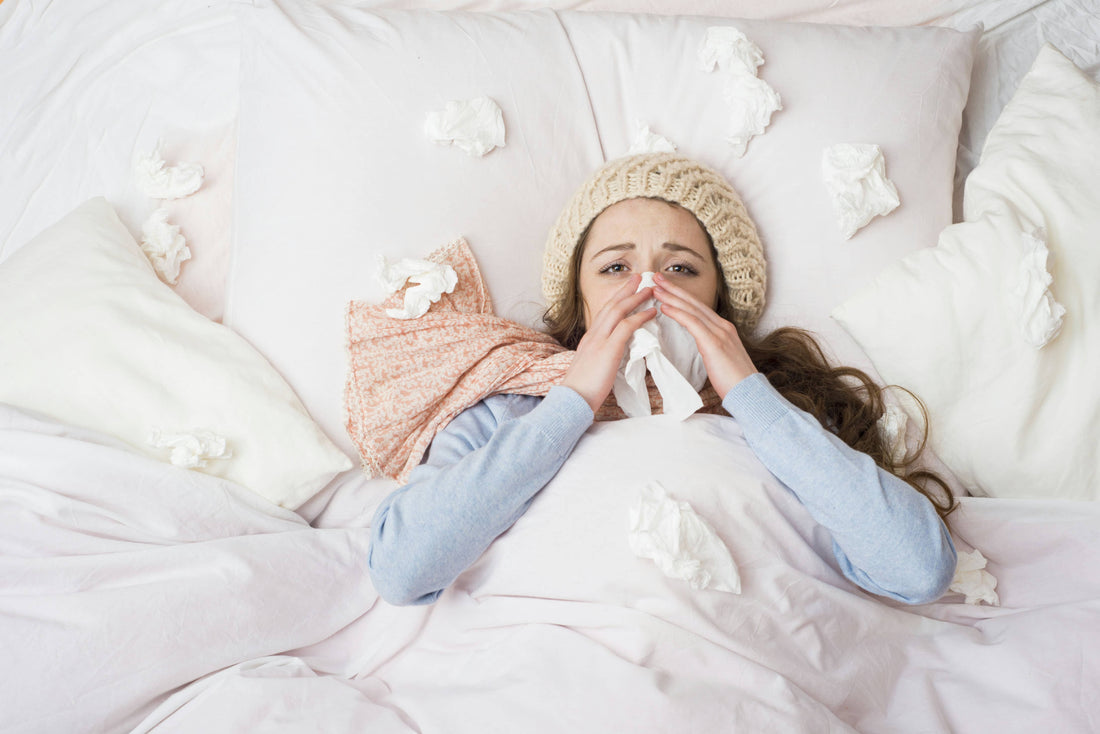
More Sleep, Less Sneezing: Getting Better Sleep Prevents Colds
Share
Multiple studies have shown that lack of sleep can lead to some serious health problems, such as diabetes and heart disease, but what about more common health issues like colds and other illnesses?
A new study published in Sleep journal has reported that sleep deprivation can also lead to our bodies being unable to fight off the germs that lead to colds, stating that adults that slept less than six hours a night were up to four times more likely to catch a cold.
It was also shown that people that got more than seven hours of sleep per night were able to not only prevent catching a cold in the first place, but were also able to recover more quickly from the symptoms of seasonal allergies or even sinus infections.
The study also showed that it’s not just the amount of sleep that counts when it comes to our ability to fight off illness, but the quality of the sleep, as well. Study participants that slept more than nine hours were also more susceptible to becoming sick, and it’s believed this is due to the fact that while they are sleeping for a longer period of time, the sleep that they do get is of poor quality, placing them in the same category as the participants not getting enough sleep.
High-quality sleep has been shown to boost the immune system and help prevent everything from the common cold to pneumonia. The lack of good quality sleep has been shown to have the same effect on your immune system as severe physical stress.
Health experts recommend that adults sleep for a minimum of eight hours per night, while children and teenagers should be getting closer to ten hours of sleep a night. It is also recommended that you take some extra steps toward making sure that the sleep you get is of the best possible quality, such as creating an ideal sleep environment by blocking out unwanted light and sound, turning off all electronic devices, and investing in a comfortable and supportive memory foam mattress.
You can also help your body to stay in top form by making sure that it’s producing the right amount of melatonin (the hormone responsible for regulating sleep). It’s imperative that our bodies stay on the right “sleep-wake” cycle by being exposed to sunlight during the day, and removing all artificial light sources at night.
Prepping the body for bedtime has also been shown to encourage better sleep. You can do so by taking a warm bath before turning in for the night, keeping the temperature in your bedroom to around 70 degrees Fahrenheit, and reading or listening to music as a way to relax before hitting the hay, instead of watching TV or surfing the Web.
With a little bit of effort, we can make sure to get the highest level of quality sleep possible, and prevent everything from the common cold to heart disease with a boost to our immune systems and overall health and well-being.
